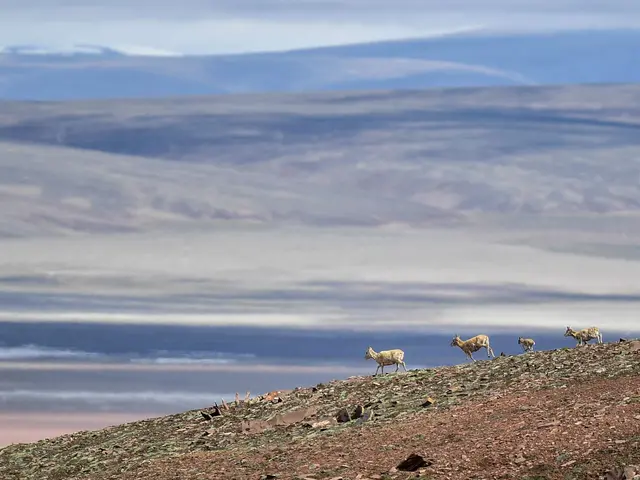At the Zonag Lake at the Hoh Xil National Nature Reserve in northwest China's Qinghai Province, newborn antelopes and their mothers are finding their way home with not a care in the world.
For more than a decade, peace has reigned in this sacred land where a rare species rules, as local rangers cheer the fact that not a single gunshot has been heard since 2009.
The species, called the Tibetan antelope, is viewed as a treasure in the region. Every May, pregnant antelopes start their annual migration to the lake region, known as their "delivery room."
Poaching sprees had once driven the species to the edge of extinction, and the population dropped from 200,000 to 20,000 during the 1980s when they were cruelly hunted for expensive shawls. Each shawl, priced as high as 50,000 U.S. dollars, was made at the expense of three to five antelopes.
To curb the rampant slaughter of Tibetan antelopes and save them from extinction, Qinghai set up the Hoh Xil provincial-level nature reserve in 1996, and it was upgraded to a state-listed reserve in 1997.
Thanks to the anti-poaching campaign and the ban on illegal hunting for years, Hoh Xil is now home to more than 70,000 Tibetan antelopes. According to the reserve, not a single gunshot has been heard in the reserve since 2009, and it is now free from poachers.
Choephel Tashi, head of the Zonag Lake protection station, has been witnessing the changes as part of history. Born and raised in a family of rangers, he spent most of his life protecting the species and the land, and he has even confronted threatening poachers.
Every year, Tashi and his fellow rangers still go on at least 12 patrols across the lake region, and they are willing to go the extra mile for the animal they hold so dear.
As the baby antelopes now head back from the lake region to their habitats behind their mothers, the rangers are busy ensuring that all antelopes find their way home safe and sound.
"Some weak baby antelopes may fall behind and get separated from the herd during their migration journey," said Tashi.
Passing vehicles will slow down for the antelopes crossing the highway. When they gather in large groups however, the rangers will close the road to make way for the animals to prevent them from having interactions with humans.
Founded in 1997, at an altitude of around 4,500 meters, the Sonam Dargye Protection Station is one of five stations in the reserve, and takes a leading role in wildlife protection. It is also a showcase for visitors and volunteers to know more about this pristine land.
"Hoh Xil is one of the areas with the best preservation of the original ecological environment, and it's home to wild animals living on the plateau," said ranger Tsering Dorje, pointing at the map hanging on the exhibition hall.
In July 2017, Hoh Xil was inscribed on the World Heritage List and is now an appealing destination for visitors from all over the world.
"As I watched the movie Mountain Patrol, I had great sorrow for the hunted antelopes and the rangers who died protecting them. Now, standing near the stunning Hoh Xil and seeing the antelopes run wild, I can feel the tranquility and peace of this pure land," said Liu Yan, a tourist from the city of Guangzhou.
 简体中文
简体中文



